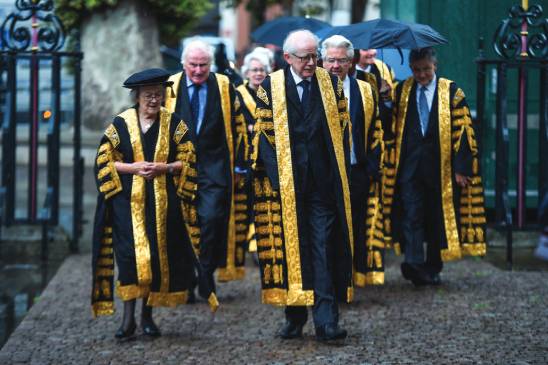
In the recent unanimous bombshell decision by the UK Supreme Court (UKSC) sitting en banc 11 members strong, the court ruled that the prime minister’s advice to the queen to prorogue Parliament for five weeks was ‘unlawful, void and of no effect’, that the queen’s subsequent order in council ordering prorogation—an exercise of the royal prerogative—was accordingly also ‘unlawful, void and of no effect’, and that the prorogation ceremony itself was ‘as if the Commissioners (the queen’s emissaries) had walked into Parliament with a blank piece of paper. It too was unlawful, null and of no effect,’ R (Miller) v The Prime Minister [2019] UKSC 41, [2019] All ER (D) 61 (Sep), para [69].
Case of Proclamations
In reaching this decision, the UKSC placed considerable reliance on the Case of Proclamations (1611) 12 Co Rep 74. The facts of the case were as follows. King James VI and I issued proclamations prohibiting new buildings from being erected









